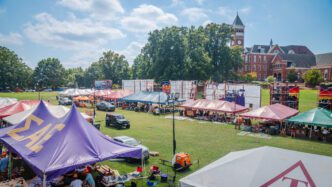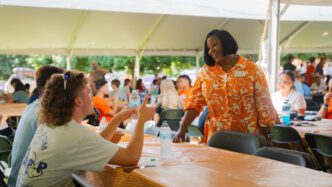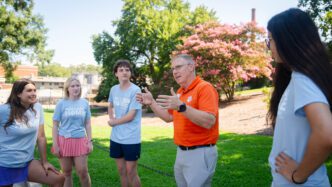This blog is take-two for October. After the hurricane, I decided to put my original article on the shelf for another day to focus on thriving. You may wonder why. You might not feel like you have been thriving following the hurricane. You may be like me: feeling as though everything is business as usual, but I’m still trying to catch up from over a week without power, restocking my fridge, ensuring my family is taking care of, worrying that I’ve done enough to support those who are still struggling, and then ensuring the work that needs to be done happens, even when my mind is on other things. I still feel discombobulated. Life doesn’t feel like business as usual, even though we want it to. We like the known, and we like our norms.
Humans are creatures of habit and routine, and natural disaster has the ability to throw us into situations that challenge our norms, put us into uncomfortable places, and require us to dig deep into our wells of perseverance. And sometimes we feel like we are failing, even when we are trying our best. And that can make us afraid, depressed, anxious, and short-tempered.
You may wonder why I can write about all this. It is because I have been in these uncomfortable places more times than I can count. Feeling like a failure, like I’ve nothing left to give, and wanting to curl up in a small ball are familiar territories for me. You are not alone.
But I also know from having been in these places that dwelling in them has a term limit. My discomfort will not be forever, and when I am low, I reflect on history. Consistently, throughout history, humanity has proven a tremendous capacity to thrive in the face of overwhelming loss:
- September 11th
- Hurricane Katrina
- World War II
- Vietnam POWs
- Sandy Hook
- COVID-19
- And many, many more events …
When I study these stories, and the people who came out of them with something profound to teach us, they tell us similar stories of survival and growth in the face of traumatic incidents. Communities who thrive and the people who are a part of them focus on connection, belonging, service, and a view of the future that is beyond the current state.
And so, like many others, as the wind settled and the rain tapered off, I ventured out of the dark of my home to work with my neighbors on clearing trees, picking up debris, and connecting. Others are serving in shelters. Many are opening their homes for hot showers, hot coffee, and again, connection and companionship. Many threw the contents of their fridge on the grill and celebrated what they had, and not what has been lost. Many prayed, and hugged others, and lent an ear to those who just needed to cry. And many are still doing these things as life isn’t back to business as usual. That’s okay. Feelings of normalcy and thriving will come back, but it can take time.
Humans thrive in the face of disaster by coming together as a community, by caring for each other in our own ways and means, and by remembering that we are collectively stronger than we are alone. But struggle can still happen, and because Clemson is a family for all, we do have resources to support you. It is never the wrong thing to do to call when you need help. And if you are struggling, check out these resources.
And remember, this disaster was hard. Be kind to yourself. And if you can, be kind to someone else, too. You won’t just survive this; you can come out on the other side thriving!







